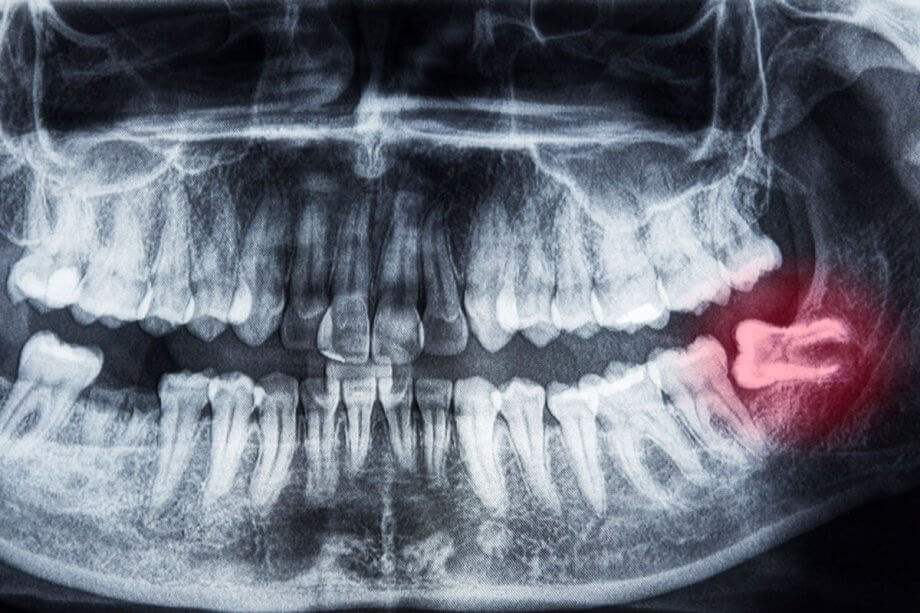There was a time not too long ago when wisdom teeth extractions were considered a rite of passage to adulthood. Now, more oral surgeons and dentists are taking a wait-and-see approach. Wisdom teeth are carefully monitored instead—if they are erupting without any complications or crowding, we may opt to leave them intact. When wisdom teeth are painful, you may think it’s a sign that they should be extracted, but that’s not always the case.
Normal Wisdom Tooth Pain
When babies and toddlers get teeth, they fuss and whine. Why? Because it’s uncomfortable. You probably don’t remember all the way back to getting those first few teeth, but getting wisdom teeth is uncomfortable for the same reasons—new teeth are breaking through your gums, causing inflammation, headaches, and jaw pain.
This pain shouldn’t be severe and it can usually be alleviated with cold compresses, topical numbing gels, and over-the-counter pain relievers. Warm saltwater rinses are a reliable home remedy as well and they serve the dual purpose of also killing bacteria that can cause infection.
Impacted Wisdom Tooth Pain
When wisdom tooth pain is prolonged and severe, it’s likely that your tooth is impacted. A wisdom tooth can be fully impacted, which means it cannot erupt at all and is stuck beneath the gum tissue, or partially impacted, when the tooth is erupting at an angle and only part of it emerges from the gums.
There are a few reasons why impacted wisdom teeth are so painful. First, the fact that they are not erupting as they should places pressure on your neighboring teeth and causes pain in the jaw. If your wisdom teeth aren’t extracted, this can eventually result in damage to these other teeth.
Partially-impacted wisdom teeth are more prone to decay because they are difficult to clean, both due to their location at the back of the mouth and also because food and bacteria easily gets trapped between the gum tissue and the tooth. Impacted wisdom teeth are also more likely to become infected, a condition called pericoronitis. An infected wisdom tooth can result in extreme pain and dental abscesses; in rare cases, it’s even possible for infection to spread to other parts of the body when left untreated.
When to See a Doctor
Whether or not your wisdom teeth are impacted, they should be watched closely to ensure that they don’t cause any oral health issues. Your regular comprehensive oral exams with your dentist should be sufficient for this, assuming that you’re seeing your dentist every six months and radiographs are being taken at least once a year.
If your wisdom teeth are painful, and especially if this pain is accompanied by bleeding, swelling, bad breath, or small pimple-like bumps on the gum tissue, call our office to schedule an appointment. It’s likely that you’re dealing with an impacted or infected tooth that requires extraction.
Learn More About Wisdom Teeth
Do you suspect that your wisdom teeth need to be extracted? Contact us today at 505-821-2111 to schedule an appointment with Dr. Steel.

